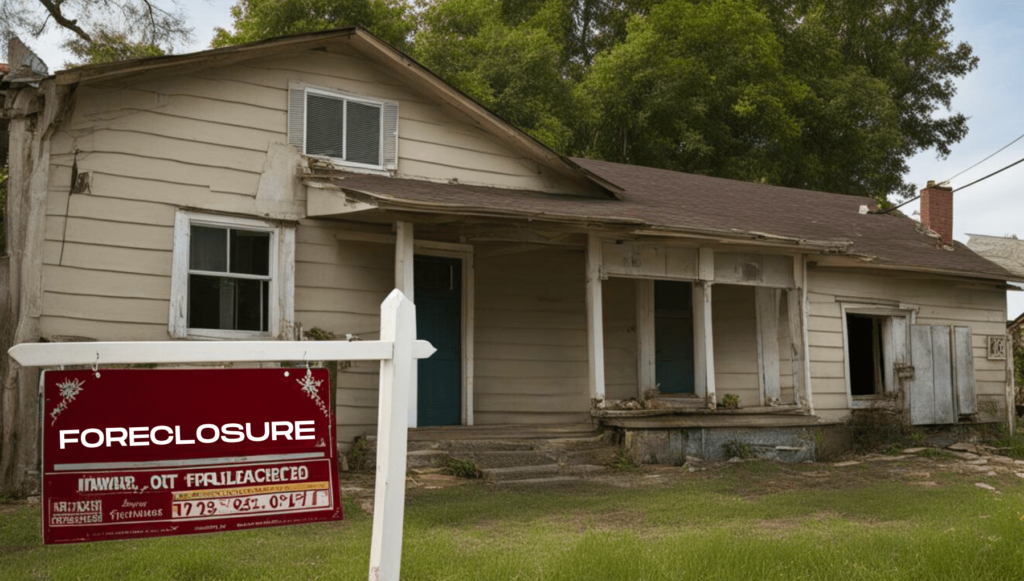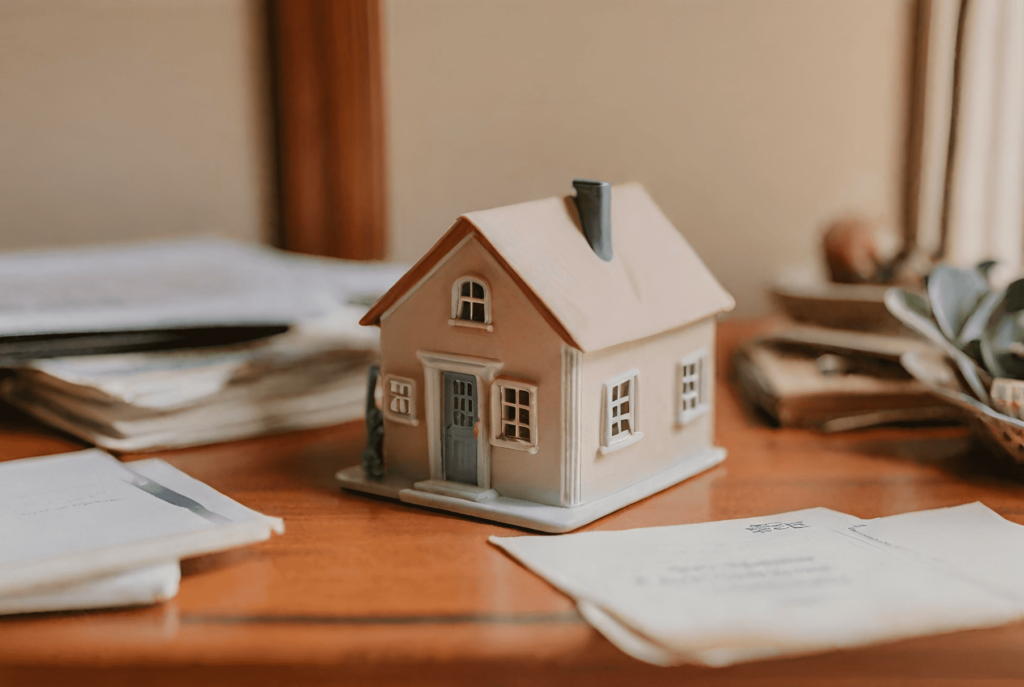Can I Sell My House Before a Foreclosure? Explore Your Options.
Foreclosure can be a stressful and overwhelming experience for homeowners. You might be wondering if you can sell your house before a foreclosure. The answer is yes; it’s possible to sell your house before a foreclosure. However, it’s essential to understand the foreclosure process and explore all your options before making a decision.
In this article, we’ll explain the foreclosure process, how foreclosure can impact homeowners, and explore alternative options to foreclosure. We’ll also discuss the steps involved in selling your house before a foreclosure, including understanding the market value of your home, preparing it for sale, marketing and listing it, negotiating and closing the sale, and legal considerations and protections.

- Selling your house before foreclosure is possible.
- Understanding the foreclosure process and laws is crucial.
- Alternative options to foreclosure should be explored first.
- Preparing your house for sale and marketing it effectively can speed up the selling process.
- Legal considerations and protections should be taken into account throughout the transaction.
Understanding Foreclosure in the United States
Before exploring whether you can sell your house before foreclosure, it’s essential to understand the foreclosure process in the United States. Foreclosure is a legal process that a lender initiates when a homeowner is unable to keep up with their mortgage payments.
The foreclosure process typically begins with the lender filing a Notice of Default (NOD) or Lis Pendens, informing the homeowner that they’re in default on their loan. The exact timeline for foreclosure varies by state and can range from a few months to several years.
| Stage | Description |
|---|---|
| Pre-foreclosure | The period between the NOD and the actual foreclosure sale, during which the homeowner may be able to cure the default by paying the outstanding amount or negotiating an alternative payment arrangement with the lender. |
| Foreclosure auction | If the homeowner is unable to cure the default, the lender may proceed with a foreclosure sale, typically through a public auction. The property is sold to the highest bidder, and the proceeds are used to pay off the outstanding mortgage balance and any applicable fees. |
| REO (Real Estate Owned) | If the property doesn’t sell at auction, it becomes REO, and the lender takes ownership of the property. The lender can then sell the property through a real estate agent or auction. |
It’s crucial to note that foreclosure laws vary by state, so it’s essential to familiarize yourself with the laws and regulations specific to your state. Understanding the foreclosure process and timeline is the first step in exploring your options and protecting your financial future.

Foreclosure can have severe consequences for homeowners, both in terms of their financial situation and credit score. When a homeowner defaults on their mortgage payments, the lender can initiate the foreclosure process, which eventually leads to the sale of the property at a public auction. In many cases, the sale price may be significantly lower than the amount owed, leaving the homeowner with a deficiency balance that they still owe to the lender.
A foreclosure also has a lasting impact on a homeowner’s credit score, making it difficult for them to secure future loans or credit. In fact, a foreclosure can remain on a credit report for up to seven years, affecting their creditworthiness and overall financial well-being. This can lead to difficulties in obtaining credit for other assets, such as a car or even renting a new home.
Foreclosure may also have other financial consequences, such as a potential tax liability for any deficiency balance or loss of equity in the home. Additionally, the stress and uncertainty of the foreclosure process can take a toll on a homeowner’s mental health and well-being.
Therefore, it’s essential to explore all possible alternatives to foreclosure to protect your financial future and minimize the impact on your credit score. By understanding the consequences of foreclosure, homeowners can make an informed decision about their options and take control of their financial destiny.

If you’re facing foreclosure, it’s important to remember that you have options. There are alternatives to foreclosure that can help you protect your financial future. Explore options such as loan modification, short sale, and deed in lieu.
Loan modification involves negotiating with your lender to change the terms of your loan. This may include reducing your interest rate or extending the length of your loan to make your payments more affordable. Keep in mind that loan modification may not be possible for everyone, and it can be a lengthy and complicated process.
A short sale occurs when you sell your property for less than you owe on your mortgage. The lender agrees to accept the sale proceeds as full payment of your loan, and you avoid foreclosure. A short sale can have less of an impact on your credit score than a foreclosure, although it still has an impact.
Deed in lieu is another option, where you transfer ownership of your property back to your lender instead of going through foreclosure. This can be a faster and less expensive option than foreclosure but may also have an impact on your credit score.
Before considering selling your house, explore these foreclosure alternatives and weigh their pros and cons. Consulting with an experienced professional can also help you make the right decision for your unique financial situation.

| Pros | Cons |
|---|---|
| May help you avoid foreclosure | May not be available to everyone |
| Can have less of an impact on your credit score than foreclosure | Can still have an impact on your credit score |
| Can be a faster and less expensive option than foreclosure | May require negotiating with your lender and can be a lengthy process |
Selling Your House Before Foreclosure
If you’ve found yourself facing foreclosure, selling your house before foreclosure might be the best option for you. One way to do this is by working with cash home buyers, such as Ready Set Sell My Home, who specialize in purchasing houses for cash and can provide a quick sale solution. Working with a reputable cash home buyer can help you get out of your financial bind quickly and efficiently.

When working with cash home buyers, you can expect a quick and easy process. They’ll take care of all the paperwork, and you can close the sale in as little as a week. This can be a lifesaver if you need to sell your house quickly to avoid foreclosure.
Another advantage of working with cash home buyers is that they will buy your house as-is, no matter its condition. This means you won’t have to worry about making any expensive repairs or renovations to your property before selling it. You can sell your house in whatever condition it’s in, and they’ll take care of the rest.
If you’re considering selling your house before foreclosure, reach out to reputable cash home buyers like Ready Set Sell My Home. They can help you protect your financial future and get out of a tough situation quickly and efficiently.
Understanding the Market Value of Your House
Before selling your house, it’s essential to determine its market value through an appraisal or consultation with a real estate agent. Knowing the current market value will help you set the right price and attract potential buyers.
Don’t make the mistake of overvaluing your house. If you set the price too high, you may turn away potential buyers and end up in a worse financial situation.
An appraisal is a professional evaluation of your house’s worth. It takes into account various factors such as the house’s size, location, condition, and recent sales of similar houses in the area. You can hire an appraiser to conduct the appraisal, which usually costs a few hundred dollars.
Alternatively, you can consult with a real estate agent who can provide a comparative market analysis (CMA) of your house. A CMA compares your house to similar houses that have recently sold in your area. Based on this analysis, the agent can provide an estimate of your house’s value.
It’s important to note that although an appraisal or CMA can provide a good idea of your house’s market value, the final price will ultimately depend on negotiations with potential buyers.

When determining the market value of your house, keep in mind that the real estate market is constantly changing, and the value of your house may fluctuate. Stay informed about the local real estate market and adjust your price accordingly.
Preparing Your House for Sale
One of the key factors in selling your house quickly and for a good price is preparing it for sale. This involves enhancing its curb appeal, addressing necessary repairs and renovations, and considering home staging.
Curb appeal is the first thing potential buyers notice when they pull up to your home. Make a great first impression by taking care of your lawn, landscaping, and exterior features like doors and windows. Consider repainting the exterior of the house or adding new features like shutters or fresh landscaping.
Addressing necessary repairs and renovations is also crucial to preparing your house for sale. Be sure to fix any obvious issues like leaky faucets, squeaky doors, or damaged walls. Consider larger projects like replacing old appliances or redoing outdated bathrooms or kitchens.
Home staging involves making your house look as appealing as possible to potential buyers. This can involve rearranging furniture, adding decorative items, or even renting furniture to showcase each room’s potential. It’s important to make each room look spacious, comfortable, and inviting.
By taking the time to prepare your house for sale, you can increase its appeal to potential buyers and maximize your chances of a quick and successful sale.

After preparing your house for sale, the next step is to market and list it effectively. In today’s digital age, online listings are essential in reaching potential buyers. Utilize popular platforms such as Zillow, Trulia, and Realtor.com to showcase your property and increase its visibility. Having professional photography can make a significant impact on how your property is perceived, attracting more buyers.
| Home Marketing Strategies | Benefits |
|---|---|
| Open Houses | Allows buyers to get a feel for the property and helps create a sense of urgency. |
| Social Media Advertising | Provides a cost-effective way to reach a wide audience and generate interest. |
| Email Campaigns | Targets potential buyers directly with personalized communication. |
Consider various home marketing strategies to attract potential buyers and generate interest in your property. Remember, the goal is to make your house stand out from the competition.

Negotiating and Closing the Sale
Once you start receiving offers for your house, it’s time to prepare for negotiations. The negotiation process involves evaluating offers and counteroffers, which can be overwhelming if you’re not prepared.
It’s important to keep in mind that negotiations are not just about the price of the house, but also about closing costs, such as transfer taxes, title insurance, appraisal fees, and more. Closing costs can vary, so it’s crucial to have a clear understanding of what you’ll be responsible for.
To ensure a smooth negotiation process, it’s recommended to have a real estate agent or attorney by your side. They can provide expert guidance, negotiate on your behalf, and ensure all legal considerations are taken care of.
Once you’ve reached an agreement with the buyer, it’s time to close the sale. During the closing, all final paperwork is signed, and the funds are transferred to your account. The closing process can take anywhere from a few days to a few weeks, depending on various factors such as the type of financing the buyer is using and the title company’s workload.
Remember, negotiating and closing the sale can be a complicated and stressful process. Hiring a professional real estate agent or attorney can help make the process smoother and alleviate some of the stress.

Disclaimer: The image is used for illustrative purposes only.
Legal Considerations and Protections
As you navigate the process of selling your house before foreclosure, it’s important to understand your legal rights and protect your interests. Federal and state laws govern the foreclosure process, and it’s crucial to be aware of the specific laws in your state that may impact your ability to sell your house.
You have legal rights throughout the sale process, including the right to negotiate the terms of the sale, evaluate offers and counteroffers, and receive full disclosure of any relevant information about the property. Additionally, if you’re facing foreclosure, you may be eligible for legal assistance to help you navigate the complex legal landscape and protect your interests.
Working with a reputable real estate agent or cash home buyer like Ready Set Sell My Home can also help ensure that you’re fully informed and protected throughout the sale process. By relying on experts with experience in navigating foreclosure sales, you can feel confident that your legal rights and interests are being safeguarded.
Whether you’re exploring alternatives to foreclosure or selling your house before foreclosure, understanding your legal rights and seeking legal assistance if needed is crucial for protecting your financial future and securing the best possible outcome.

Selling your house before foreclosure can be a challenging and emotional decision, but it can also be the best solution for protecting your financial future. By understanding the foreclosure process and seeking legal assistance if needed, you can navigate this challenging situation with confidence. Exploring alternatives to foreclosure, such as loan modifications, short sales, or deeds in lieu, may also help you avoid foreclosure and protect your credit score. If selling your house seems like the best option for you, reach out to reputable cash home buyers like Ready Set Sell My Home, who can provide a quick sale solution. To maximize your chances of selling your house quickly, it’s important to understand the market value of your house and prepare it for sale. Enhancing your home’s curb appeal, staging the home, and addressing any necessary repairs and renovations can make it more appealing to potential buyers. Marketing and listing your home in online platforms and using professional photography can also attract potential buyers. Be prepared for negotiations and evaluate offers and counteroffers to ensure a successful sale. Finally, throughout the process of selling your house before foreclosure, it’s crucial to understand your legal rights and seek legal assistance if needed. Familiarize yourself with foreclosure laws in your state and ensure you’re protected throughout the transaction. In conclusion, selling your house before foreclosure can provide a lifeline for protecting your financial future. Take control of your situation, explore your options, and act now to protect your financial well-being.
FAQ
Can I sell my house before a foreclosure?
Yes, you can sell your house before a foreclosure. Exploring your options and acting quickly is key.
How does foreclosure affect homeowners?
Foreclosure can have severe consequences, including a negative impact on your credit score and financial stability.
What are the alternatives to foreclosure?
There are alternatives to foreclosure such as loan modification, short sale, or a deed in lieu, which can help you avoid the foreclosure process.
How do I sell my house before foreclosure?
Selling your house before foreclosure involves understanding the process, pricing it right, and considering cash home buyers like Ready Set Sell My Home for a quick sale.
How do I determine the market value of my house?
You can determine the market value of your house through an appraisal or consultation with a real estate agent.
How can I prepare my house for sale?
To maximize your chances of selling quickly, focus on enhancing curb appeal, staging the home, and addressing necessary repairs and renovations.
How do I market and list my house for sale?
Effectively market and list your house by utilizing online platforms, professional photography, and various home marketing strategies.
How do I negotiate and close the sale?
Be prepared for negotiations, evaluate offers and counteroffers, and consider closing costs to ensure a smooth and successful sale.
What legal considerations and protections should I be aware of?
Familiarize yourself with your legal rights, foreclosure laws in your state, and seek legal assistance if needed to protect yourself throughout the transaction.
Why should I sell my house before foreclosure?
Selling your house before foreclosure can help protect your financial future and provide a lifeline in a challenging situation.
Need Additional Resources
Do you want more information like this? Feel free to check out our other blog topics and blog feeds. Click the button below to learn more!
Additional Foreclosure Blogs
Need to know more about foreclosure and the process? Check out our related blogs.
